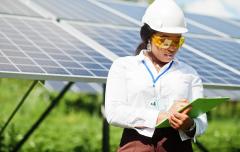Energy Transition Plans and other initiatives to unlock finance for African countries
During the last two decades, citizens in western countries have been pushing for new green policies, leading to the development of renewable energies, thus triggering unprecedented changes in the economic development: from new, high added-value jobs to more efficient industries and electric cars, the impact of such shift has affected the life of millions.
However, most of those investments have been focused on the West, setting aside many other countries in their initial, or mid-stages of their transformational changes. Given that reducing carbon emissions is actually a goal at a global scale, it does not seem smart to disregard those countries, particularly when many economic and demographic indicators show that they will play a key role in the incoming decades. Investors, governments, and organizations are realizing that it is needed to show a higher commitment in terms of financial and economic support to these countries.
Indeed, this matter has been addressed on the Energy Day at COP27, during a gathering where several African ministers called for the necessary investments to finance critical energy infrastructure needed for economic and social development across the continent. Rich countries must show greater financial commitment, as Damilola Ogunbiyi, CEO and Special Representative of the UN Secretary-General for Sustainable Energy for All and Co-Chair of UN-Energy said: “Over the last two decades, less than two percent of global investment in renewables has gone to Africa, which makes it impossible for countries to achieve their energy access and net-zero targets. Much more finance for Africa is needed from the international community,”
“Over the last two decades, less than two percent of global investment in renewables has gone to Africa, which makes it impossible for countries to achieve their energy access and net-zero targets. Much more finance for Africa is needed from the international community.” Damilola Ogunbiyi, CEO and Special Representative of the UN Secretary-General for Sustainable Energy for All and Co-Chair of UN-Energy



